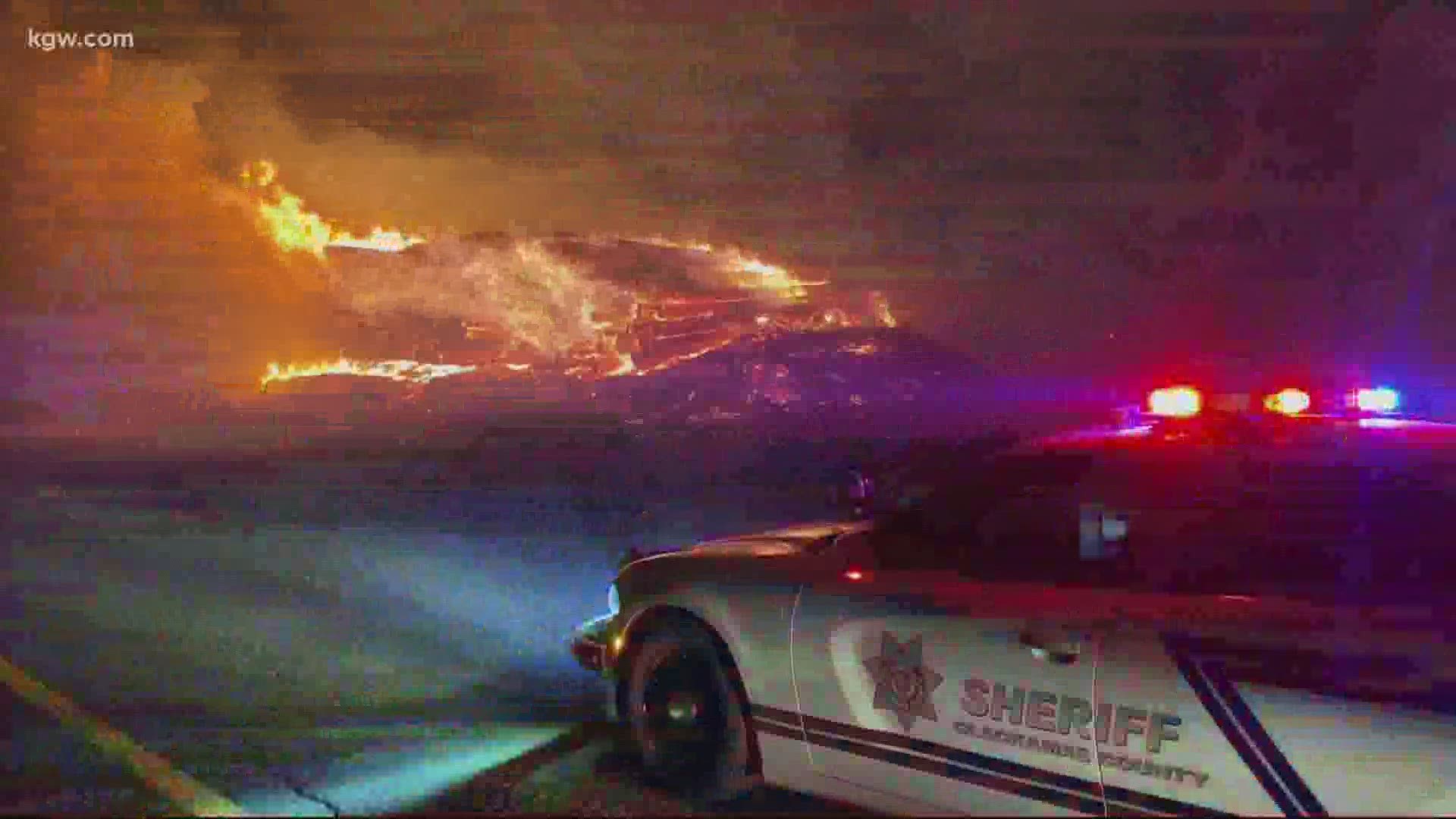The days of smoke-filled skies up and down the west coast continue as historic wildfires burn across the region.
Saturday, the air quality across most of Oregon ranged from unhealthy to hazardous levels. In the mid-valley the air was so bad at times that it was off the charts.
“Wildfire smoke is like tobacco smoke without the nicotine,” Dr. John Balmes said.
Balmes is an expert on the impact of wildfire smoke on your health. He is a professor of medicine at the University of California San Francisco, professor of environmental health sciences at UC-Berkeley and a national spokesperson for the American Lung Association. Right now, he is worried about days upon days of hazardous air quality in Oregon.
He says, when it comes to air quality, the dose makes the poison and right now areas on the West Coast are getting a heavy dosage.
“The more days in a row that we have bad air, there’s a cumulative effect that we’re worried about,” he said.
It is especially concerning for people with underlying lung and heart conditions such as asthma, COPD and heart disease. However, this dangerous smoky air impacts everyone.
“There's an increase for lower respiratory tract infections too,” Balmes said. “And that actually affects everybody, even healthy people.”
Wildfire smoke can irritate your lungs, cause inflammation, affect your immune system and make you more prone to lung infections, including the virus that causes COVID-19.
“We're very worried about the nexus right now of the pandemic and wildfire smoke, especially the kind of smoke that northern California and Oregon are getting right now; where it's really high and day after day,” Balmes said.
The American Lung Association says protecting lung health should be part of a wildfire emergency plan and has these recommendations.
- Stay indoors: People living close to the fire-stricken areas should remain indoors, unless prompted by local officials to evacuate, and avoid breathing smoke, ashes and other pollution in the area.
- Don't exercise outside: If you live close to or in the surrounding area, don't exercise outdoors, especially if you smell smoke or notice eye or throat irritation.
- Don't count on a dust mask: Ordinary dust masks, designed to filter out large particles, and cloth facial coverings will not help. They still allow the more dangerous smaller particles to pass through. Special, more expensive dust masks with an N-95 or N-100 filter will filter out the damaging fine particles, but may not fit properly and are difficult for people with lung disease to use. Due to the COVID19 pandemic, N95 masks may not be readily available due to shortages and because they are needed for frontline health care workers. If you have lung disease, consult with your doctor before using an N95 mask. These masks can make it more difficult for anyone to breathe and should only be used if you must go outside.
- Take precautions for kids: Extra precaution should be taken for children, who are more susceptible to smoke. Their lungs are still developing, and they breathe in more air (and consequently more pollution) for their size than adults. N-95 m=masks should not be used for children because they will likely not fit properly.
- Roll up your car windows: When driving your car in smoky areas, keep your windows and vents closed, and operate on "recirculate" setting, including when using air conditioning.
- Protect the air in your home: Stay inside as much as possible, with doors, windows and fireplace dampers shut and preferably with clean air circulating through air conditioners and air cleaners. Use air conditioners on the recirculation setting to keep from pulling outside air into the room. Air cleaning devices that have HEPA filters can provide added protection from the soot and smoke. Place damp towels under the doors and other places where the outside air may leak in.
- Prepare to evacuate if directed. Listen very closely to your local or state officials and act when ordered to protect yourself and your family. In advance, prepare any medications, medical devices, emergency contact information and a list of prescriptions to take with you.

